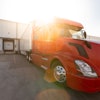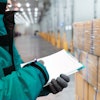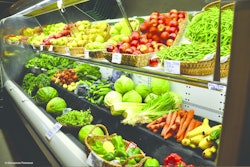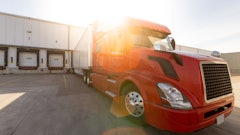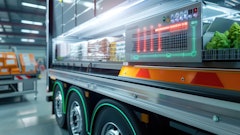Smartcool Systems Inc. announced it has received approval for beta testing of Smartcool's energy efficiency technology with a Florida-based food distribution firm. This test is the next phase in introducing Smartcool's technology to the refrigerated transportation sector. The first phase produced 18 percent energy savings when Smartcool's technology was installed on the compressors cooling two sea-going refrigerated shipping containers.
Refrigerated transport represents about 20 percent of all goods transported, with millions of sea-going containers, box trucks, and trailers using considerable extra energy to keep goods chilled, according to Smartcool. This provides an opportunity for Smartcool to expand its product offering to a new market that can yield substantial savings for customers with very short payback periods.
George Burnes, president and CEO of Smartcool states, "In our first phase of testing, we have already proven that our technology can yield significant savings on refrigerated transport compressor run time and energy consumption. Now we are aiming to translate these savings into diesel fuel saved, as this is the measurement that operators are looking for. Diesel fuel in Europe costs almost twice as much as in North America, and in both regions prices are on the rise. This indicates a huge opportunity for us to offer a valuable solution to our existing customers as well as giving us an edge in opening the door with new customers."
The second phase of testing will begin within the next two weeks, with the goal of determining the impact of Smartcool's technology on diesel consumption within refrigerated food trailers.
Bruce Kemp, Smartcool's technical director, explained the beta test. "Our beta site offers the perfect opportunity for us to test our technology on a fully loaded frozen food trailer. The food distribution company has two identical side-by-side refrigerated trailers storing 35,000 pounds of frozen turkeys and running 24/7. The monitoring and verification equipment will be installed on both trailers, while Smartcool's technology will be installed on only one of the trailers. This allows us to see the savings we can achieve in one trailer compared to how the other identical trailer refrigeration system would perform without Smartcool installed. We will be able to monitor all aspects of system performance including box temperature, compressor cycles and diesel fuel flow.”
On completion of the test, the food distributor has indicated that they would look to roll out the technology on all 115 of their trailers. This would mark Smartcool's entrance into the refrigerated food transport sector, and provide a strong foundation on which to build a presence in the market.
